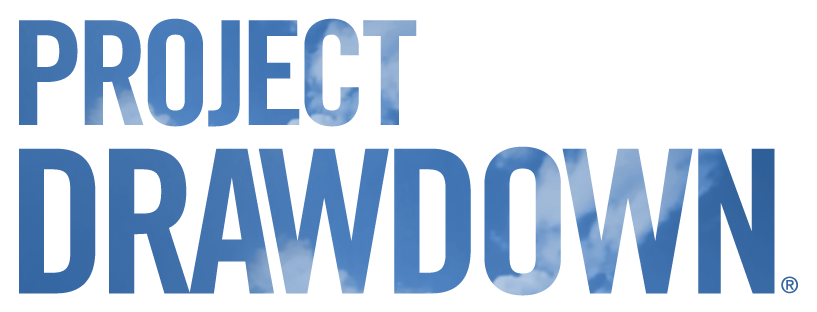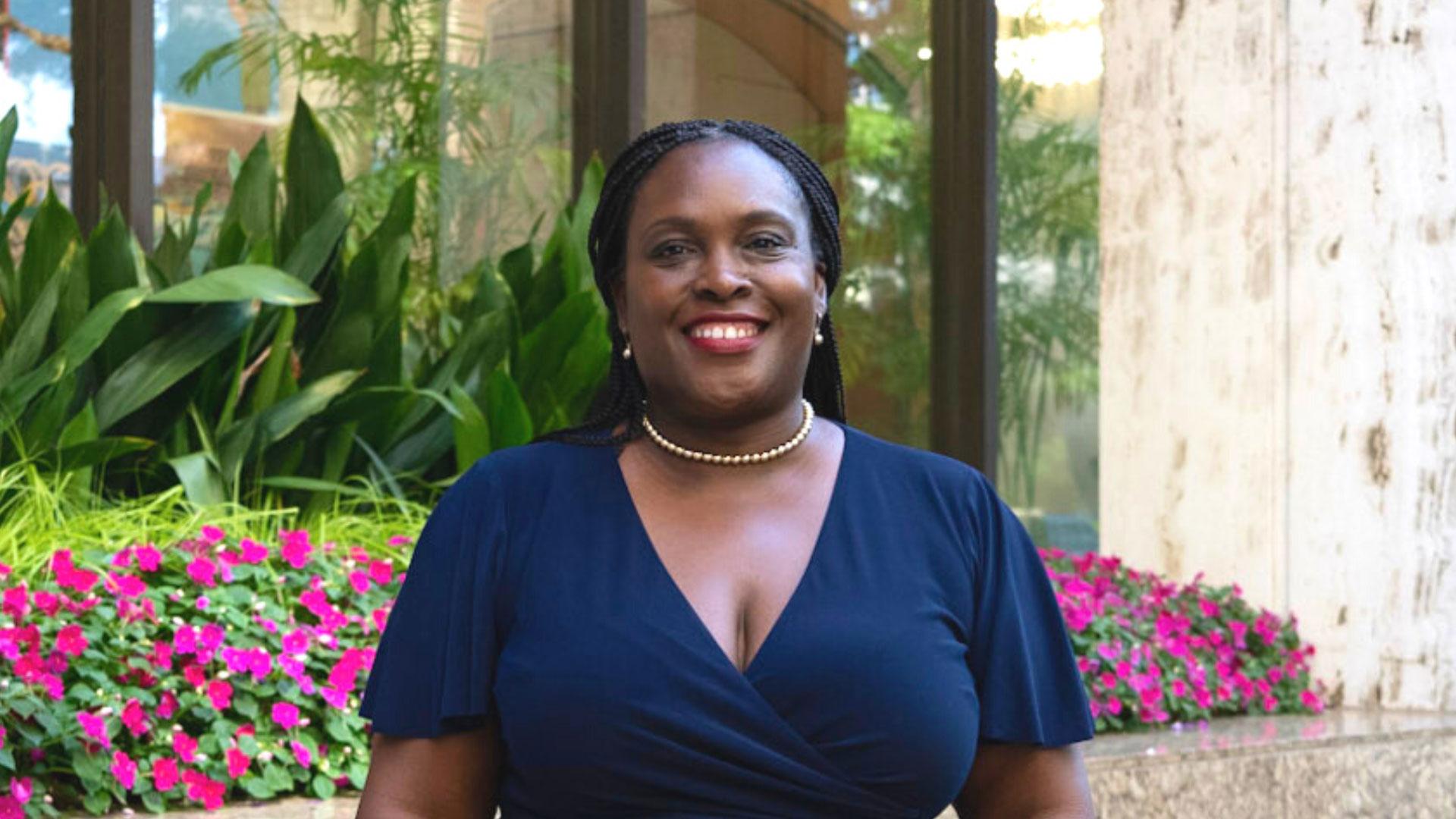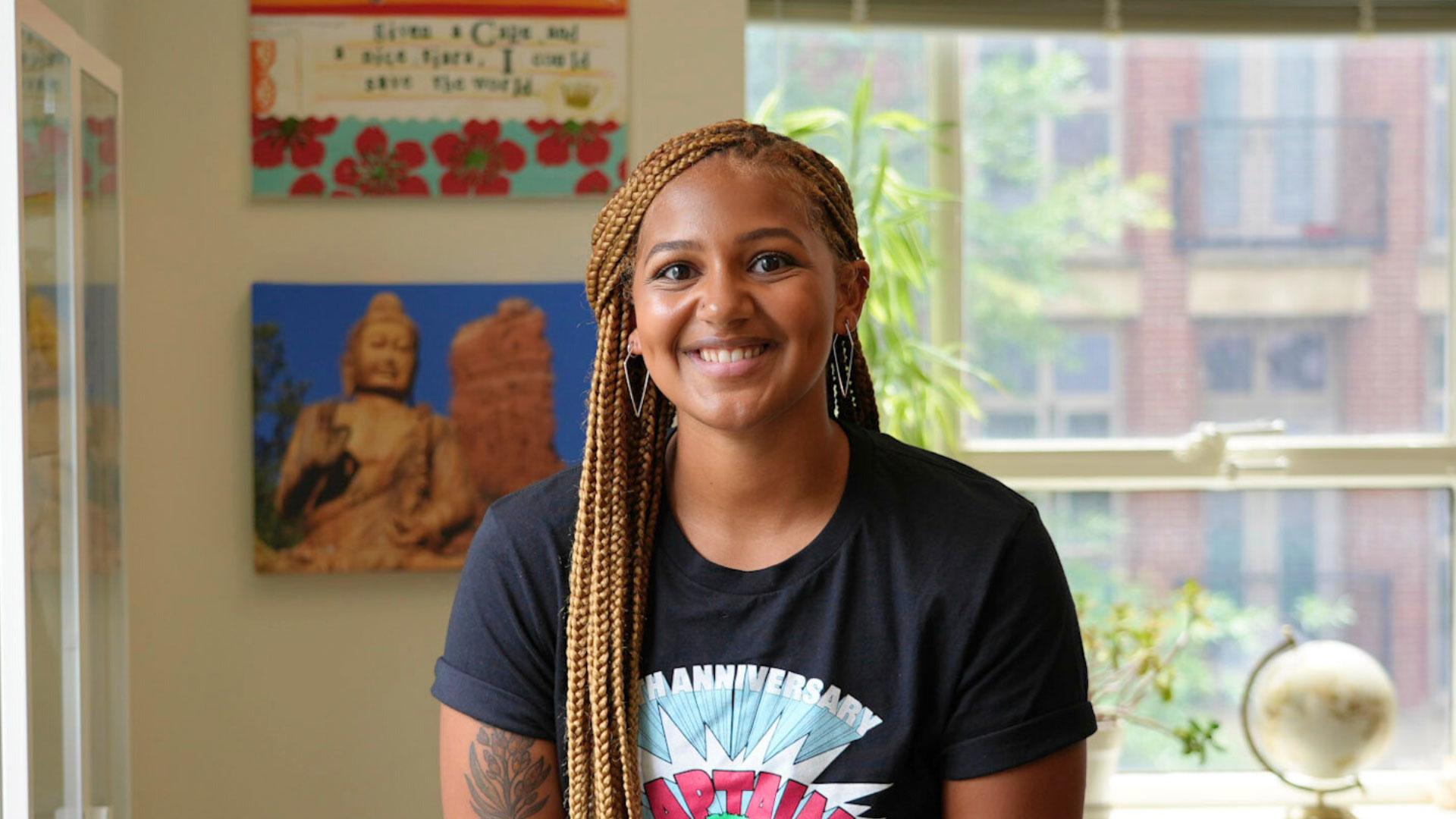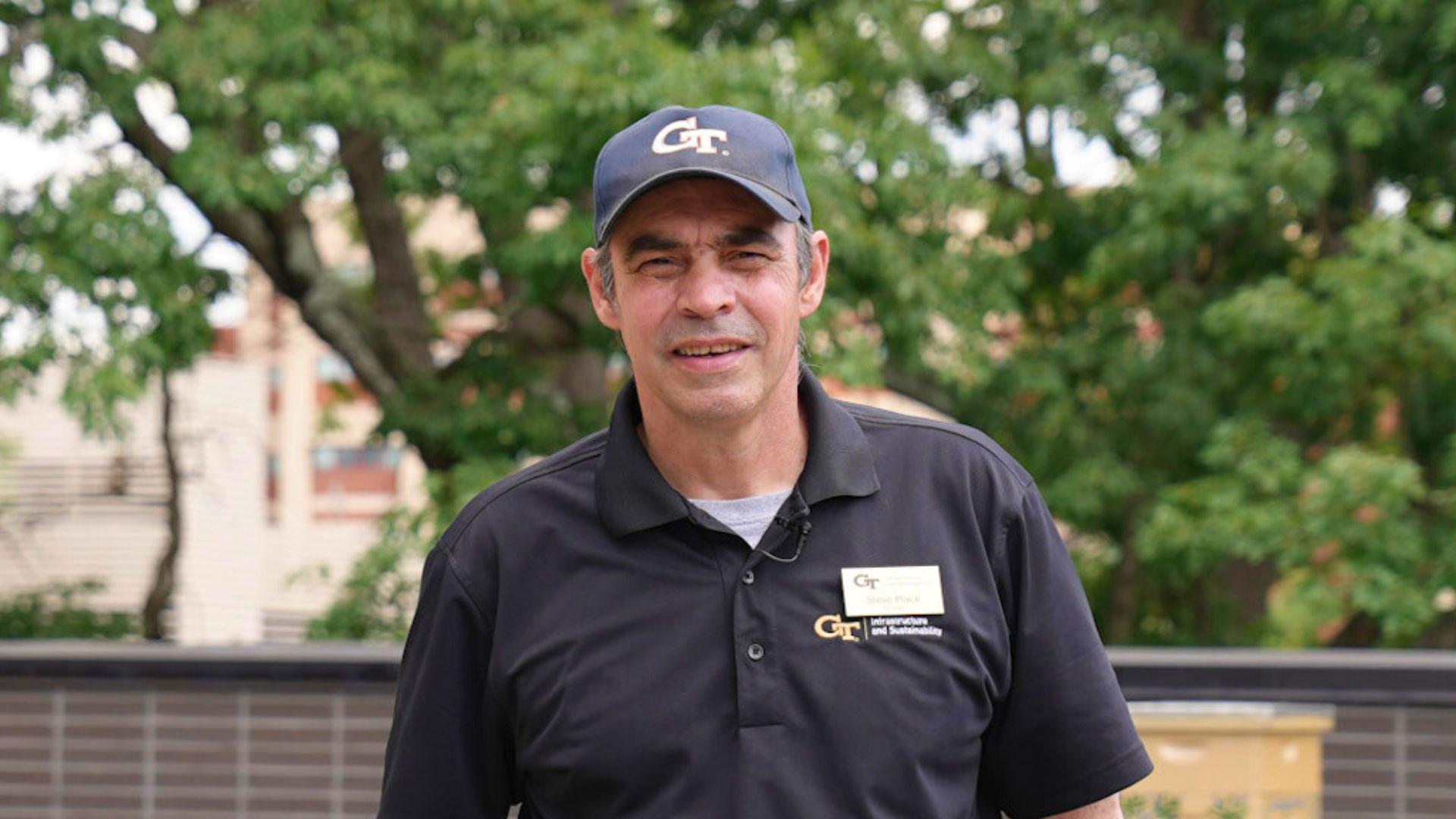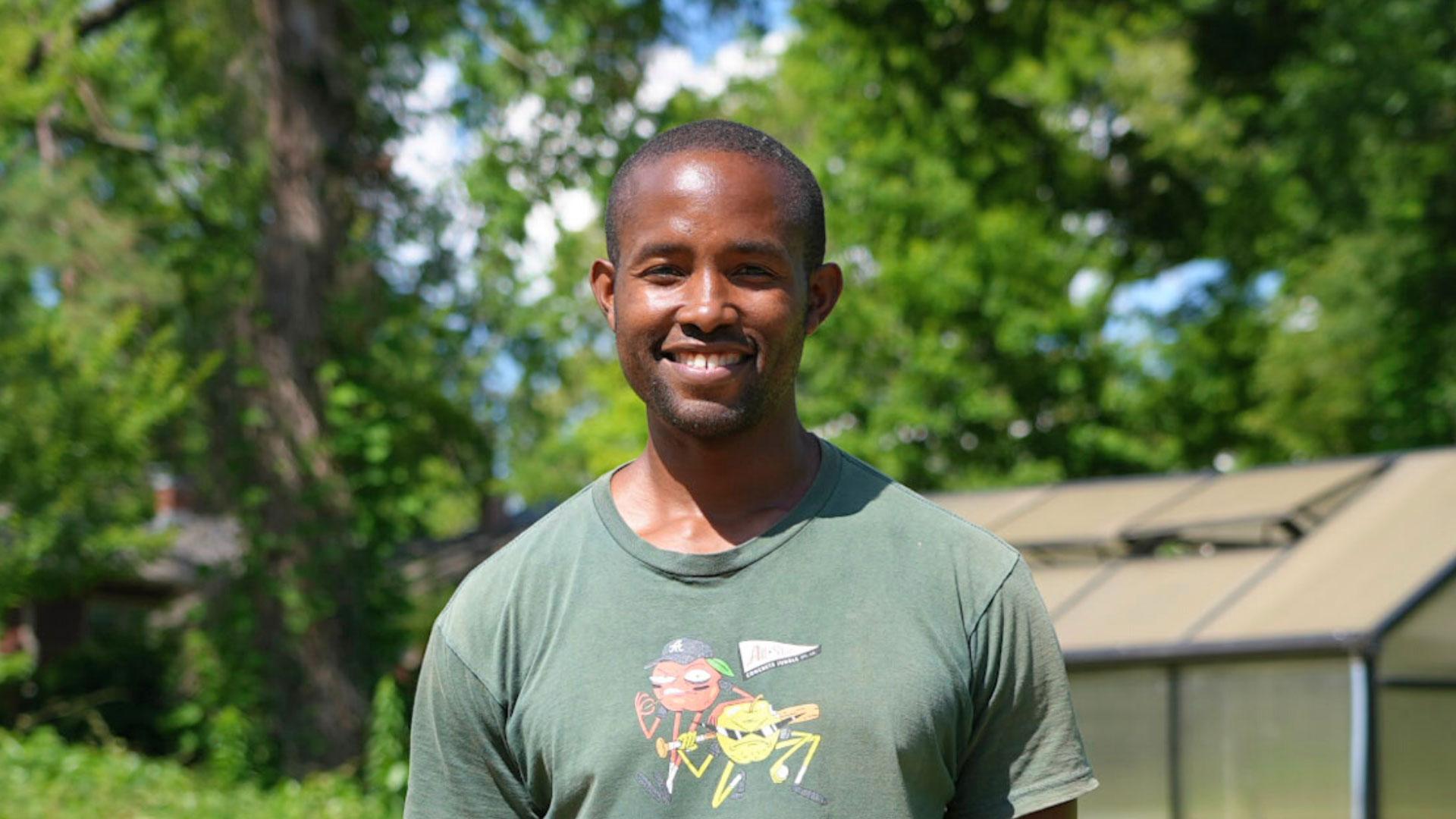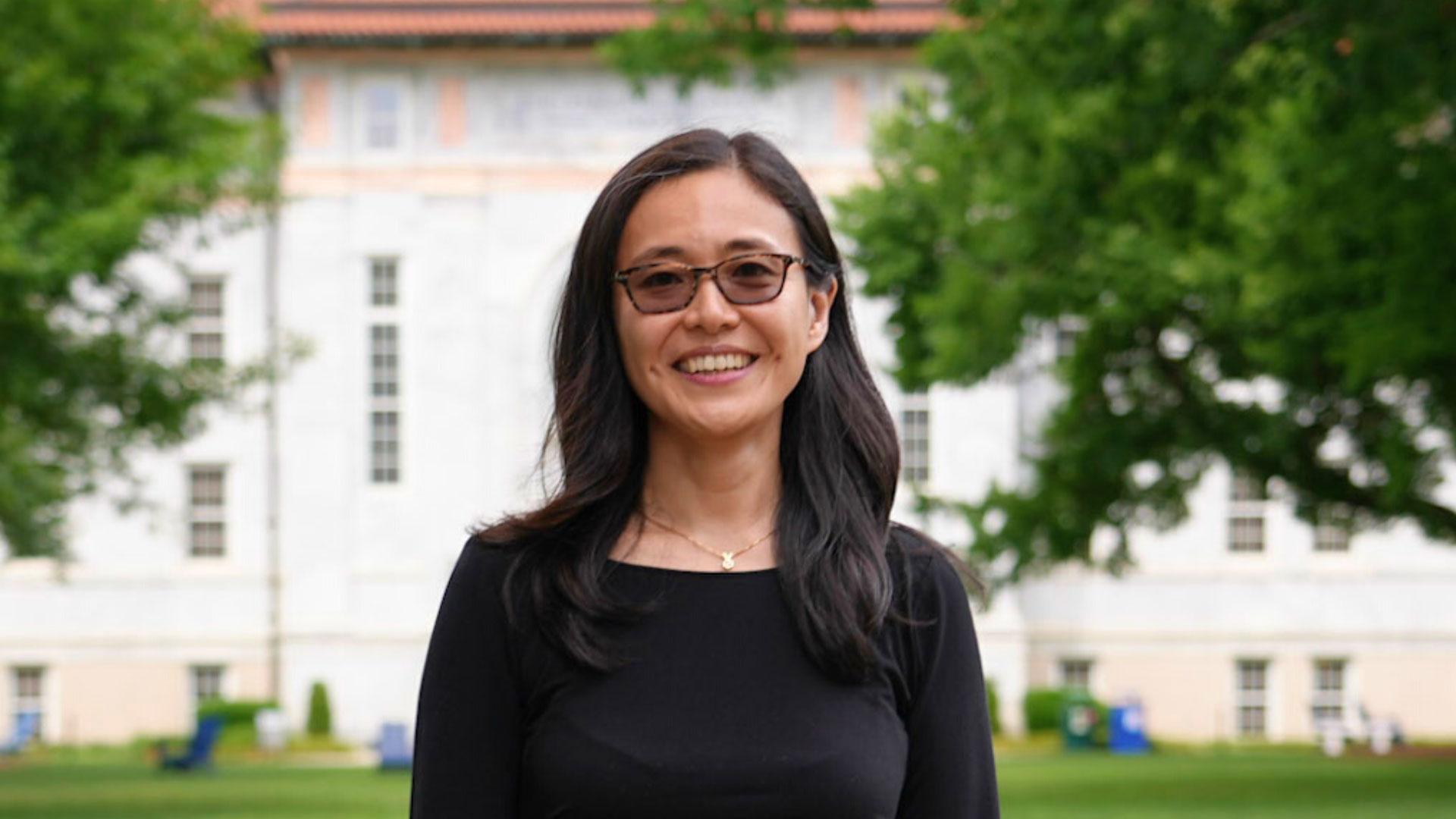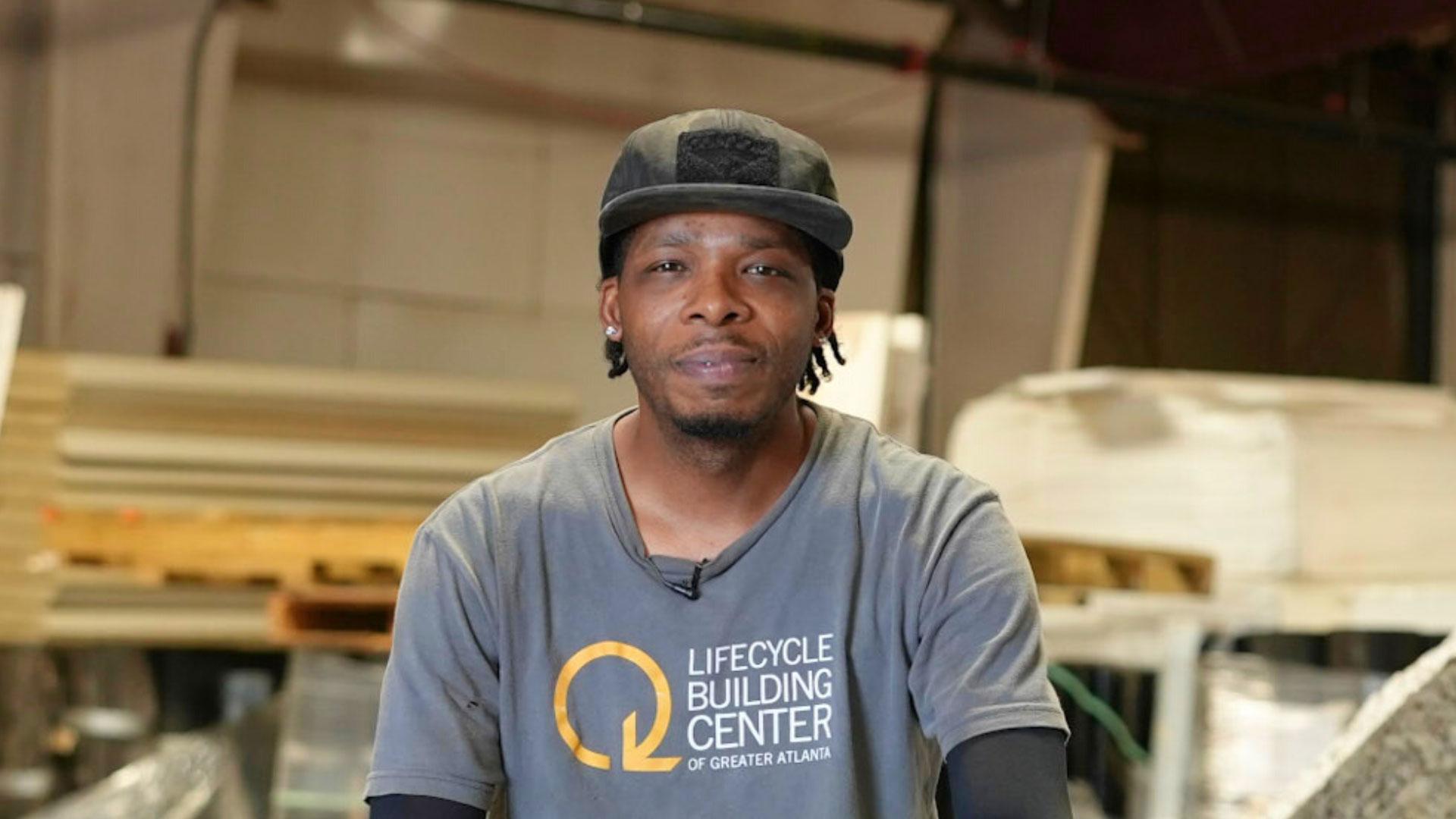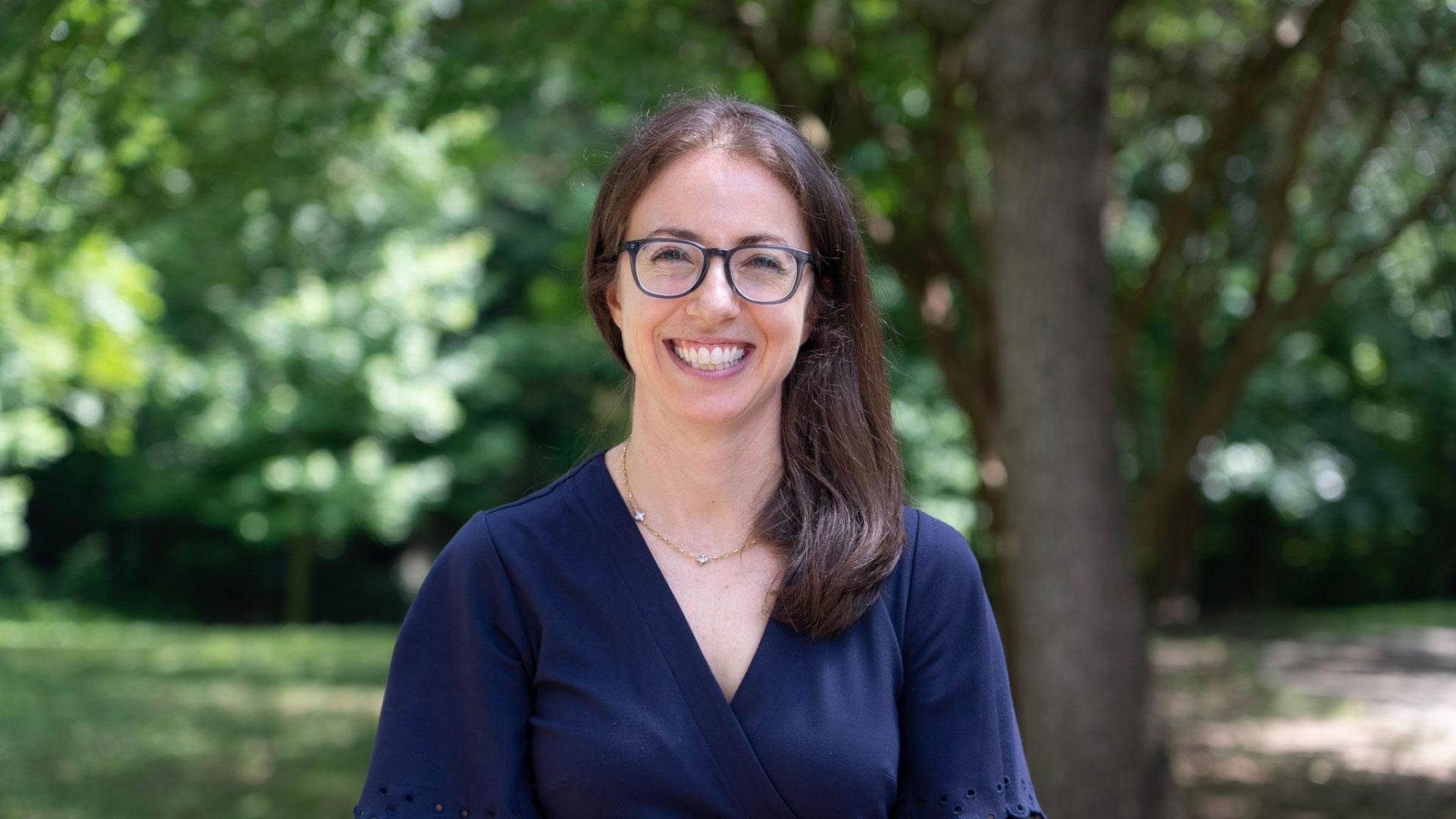Demetrius Milling: Collaborative Farming for a Livable Future
In this Episode
Demetrius’ Story
Demetrius is a part of a worker-owned community at Love is Love Cooperative Farm, located in Mansfield, Georgia. People are working together to cultivate Community Supported Agriculture (CSA) as a climate solution to help achieve drawdown. Through holistic approaches to implementing smart farming techniques and building community ownership and power, they are not only working towards a carbon-neutral farm system but also providing living wages and quality-of-life benefits to the worker-owners and employees of the cooperative. Demetrius’ work at Love is Love Cooperative Farm propels a vision for a just, healthy, and sustainable world powered by local community collaboration—a model to be replicated as we build the future.
Discussion Questions
One of the most important things you can do regarding climate change is talk about it.
- Atlanta is known for its rich history in the Civil Rights Movement and as a cultural catalyst for racial equity. More than 60% of the city’s population is comprised of people of color. When thinking about his community in Atlanta, where he was born and raised, it is this history and diversity that Demetrius loves most. Demetrius identifies as biracial, both Black and White, and is proud of his lineage of Black ancestors, which helped to build this country. What do you love most about your community? How do your heritage and identity play a role in how you see yourself as part of your community?
- Demetrius' grandfather worked at the steel mill in Atlantic Station, as did his great-grandfather. Behind the steel mill was a lead plant, which Demetrius feels contributed to his grandfather's cancer. Atlanta's successful emergence as an international city was built from the hard work and dedication of the working class. Demetrius feels pride in his family's legacy, whose lives and livelihoods were dedicated to the city's growth. Demetrius explains that this legacy "shapes the way I approach jobs to embrace being part of a hard-working middle class." Why is it important to understand the history of the place you live? As we look to create a better climate future, what lessons can we learn from the past, and from the people who helped build, shape, and care for the community we are now a part of? Is there a responsibility to continue this care in your generation?
- Community Supported Agriculture (CSA) is a model in which members buy shares of a farm's harvest in advance and receive produce regularly throughout the growing season. CSA focuses on community members supporting one other by sharing the rewards and the risks of growing food. Demetrius credits Dr. Booker T. Whatley as part of his inspiration to get involved in this sustainable farming model and to create a Black farming middle class. Dr. Whatley is known for his work regenerative agriculture, in which food is grown through holistic land stewardship practices that build soil health while sequestering carbon. In addition, the CSA model invites the community to support the farm's success while the farm in turn improves the community's health and well-being. How is the CSA model a climate solution that benefits everyone involved? What is carbon sequestration, and how is it a vital climate solution to draw down emissions?
- One of the most powerful questions Demetrius asks himself is "why"—especially when trying to problem solve. "If you understand the root of the problem, why someone is doing something, then you can take that knowledge and address it," he explains. When we ask why solutions are necessary, it is essential to lead with the frame of climate change because it will help to normalize the "why"—and we can then make smarter decisions when addressing climate challenges. What questions do you have about climate change, and how can asking "why" propel your learning and motivation to be part of climate solutions?
- Demetrius paints a simple and powerful visual to reveal how he thinks about climate grief. "It is as if someone made a huge meal, and afterward you have all these dirty dishes, and then they just walk out of the kitchen and say ‘have fun with the dishes.’” Demetrius shares that moments of climate anxiety can help people make lifestyle changes that keep climate considerations in focus. What are the feelings that Demetrius' visual example evokes in you? Can intense feelings about climate change help to create more focus, as Demetrius suggests? Do you have ideas for taking the emotion you named and focusing it on something that might inspire positive change?
Learn More
Learn about the solutions in this story.
- Solution Sector: Land Sinks
- Solution: Conservation Agriculture
- Climate Solutions Cluster: Shift Agriculture Practices
- For more on all of the Drawdown climate solutions, visit drawdown.org/solutions.
- Learn more about Demetrius’ work: Love is Love Cooperative Farm
Explore Climate Solutions 101, the world's first major educational effort focused solely on climate solutions. This video series combines Project Drawdown’s trusted resources with the expertise of inspiring, scientifically knowledgeable voices from around the world: drawdown.org/climate-solutions-101.
Take Action
- Drawdown Ecochallenge, presented by Ecochallenge.org, is a fun and social way to take measurable action on the top solutions to global warming. Take the challenge, and see how a few weeks of action add up to a lifetime of change for you and the planet. If you want to take action through Land Sinks like Demetrius is, visit drawdown.ecochallenge.org/challenges/land-sinks.
- The Drawdown Labs Job Function Action Guides are practical and shareable resources that highlight specific, high-impact climate actions employees in common corporate professions can take at work.
- ChangeX connects people with proven ideas for strengthening communities with the resources needed to implement those changes. Explore countless ways to improve your community and help the world reach drawdown.
- Climate Generation's Green Careers for a Changing Climate Instructional Supplement (for Grades 6-8) contains resources to help young people learn about Green STEM Careers — careers that can help solve the impacts of climate change using STEM skills. Throughout this instructional supplement, students will be using the resource Drawdown to make important connections to solutions that these careers will implement.
- Solutions Journalism Network highlights the importance of reporting stories of climate solutions in the media to create a more equitable and sustainable world. Visit their Teaching Climate Solutions resource to find curated collections and the latest examples of climate solutions journalism.
- SubjectToClimate (StC) is a nonprofit online connector for K-12 leaders of all subjects to find materials on climate change at no cost. Explore StC’s educator-generated database to connect to Project Drawdown-based climate education resources.
Sign up to receive updates, provide ideas, and tell us how you might share Drawdown’s Neighborhood in your community.
